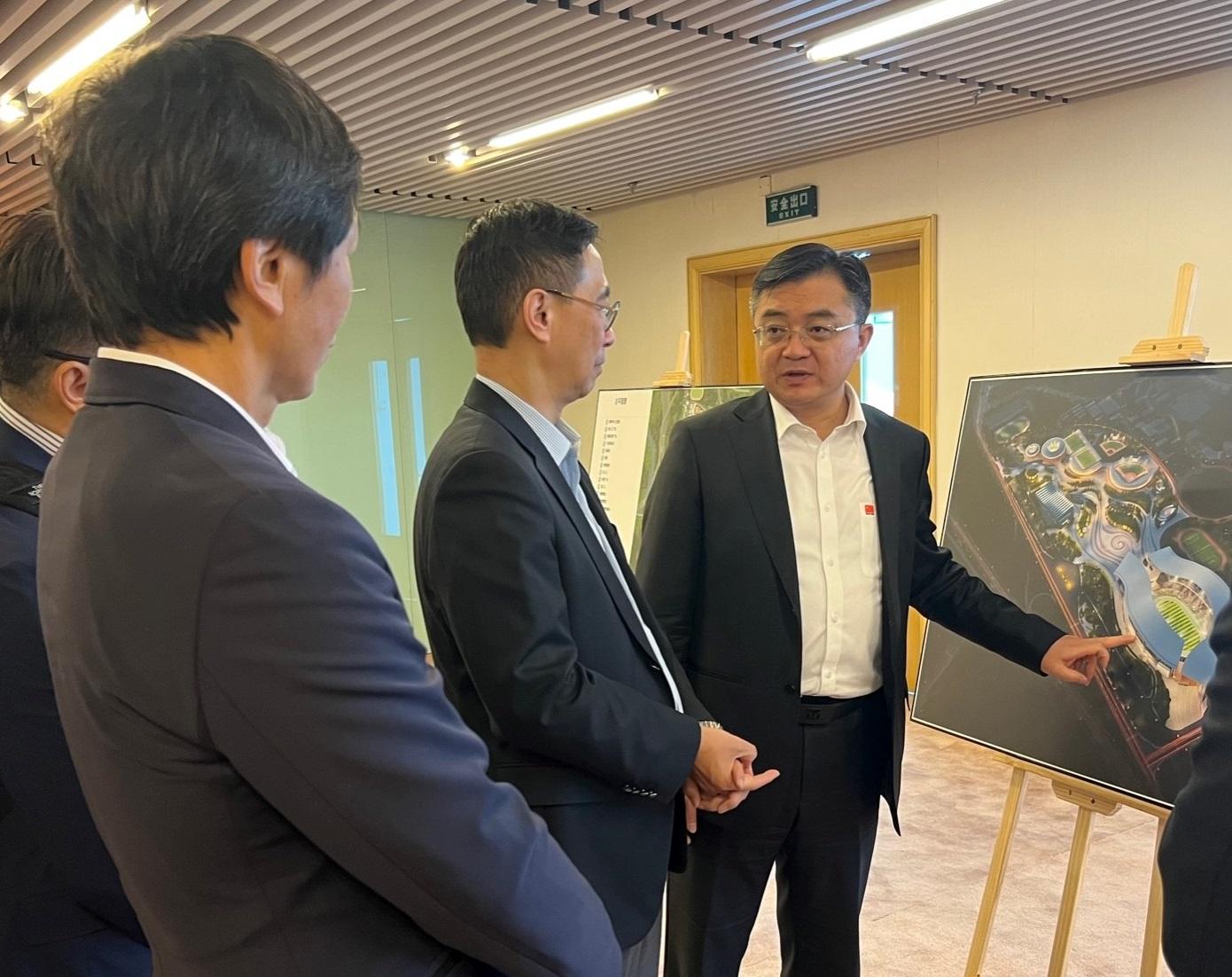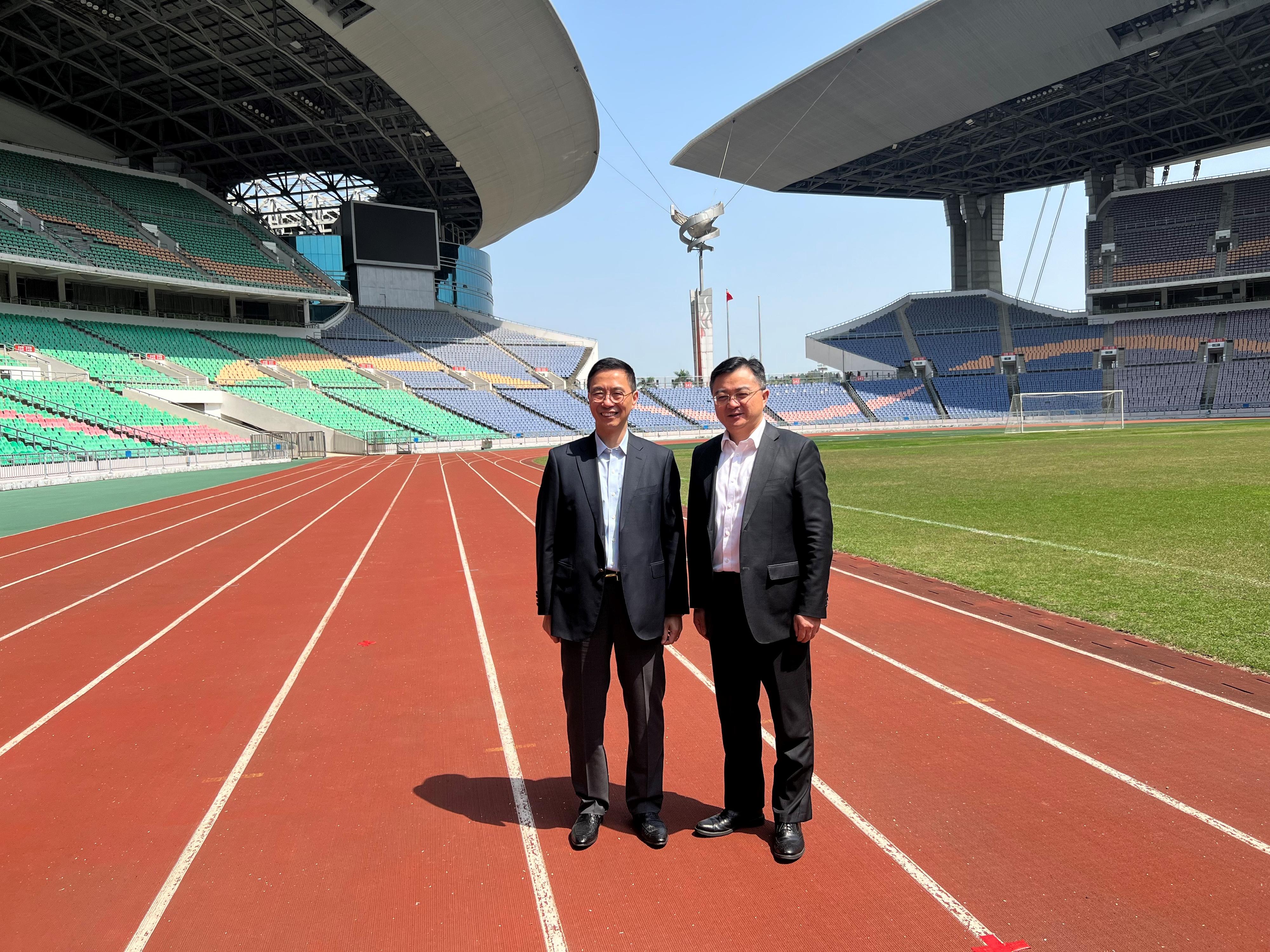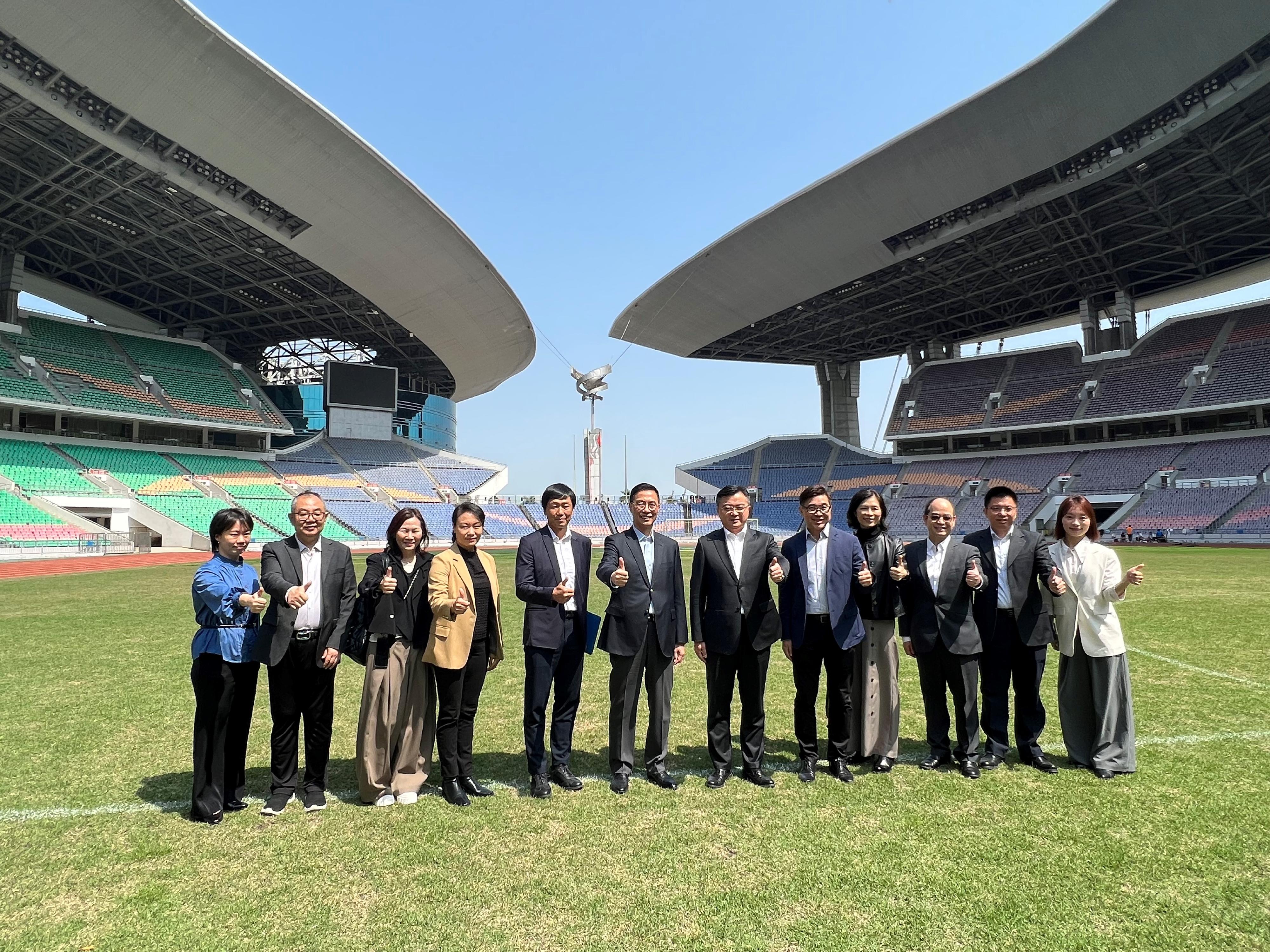LCQ18: Engaging consultants for public works projects
​Following is a question by the Hon Stanley Ng and a written reply by the Secretary for Development, Ms Bernadette Linn, in the Legislative Council today (March 20):
Question:
It is learnt that the Development Bureau has been minimising expenditure on public works projects as far as possible under the principles of “fitness-for purpose” and “no frill”. However, the construction costs of a number of projects in recent years have still amounted to billions of dollars easily, with huge expenses incurred in engaging consultants for such projects, arousing wide public concern. In this connection, will the Government inform this Council:
(1) how it determines whether the fees charged by consultants are appropriate, for example, whether the fees are based on the workload and duration of projects; as regards projects with the actual expenditure on consultants’ fees exceeding the estimates, whether the Government has looked into the causes for that; if so, of the details;
(2) of the respective percentages of the expenditures on (i) consultants’ fees and (ii) conducting environmental impact assessments in the overall costs of various projects with construction costs of $50 million or below and over $50 million in the past three years;
(3) of the consultancy firms engaged for various projects carried out in the past three years; and
(4) whether it has compiled statistics on the employment of retired civil servants by consultancy firms; if so, of the details?
Reply:
President,
The Government has been continuously investing in capital works to improve people’s quality of life, promote Hong Kong’s economic development and enhance its long-term competitiveness. With long-term planning, we implement the relevant projects in a timely and orderly manner. Public works projects normally involve efforts on various fronts, and the tasks involved in different types of projects are not the same. For example, land use planning and engineering studies normally cover technical assessments (including assessments of environment impact, traffic), carry out relevant statutory procedures, engineering designs, surveys, etc. As these tasks require professional and technical personnel of different disciplines, works departments will consider whether they have sufficient in-house manpower resources to take forward the projects before employing consultants as necessary to assist in carrying out the relevant tasks. Depending on the scale, scope, complexity, etc, of each individual projects, the consultancy fees of the projects vary.
The reply to the question raised by the Hon Stanley Ng is as follows:
(1) The Government has been adopting the principles of “achieving best value for money” and “maintaining open and fair competition” for the procurement of public works consultancies with clear procedures and guidelines set out for selecting suitable consultants. Before tendering, works departments will consider a number of factors including the complexity, the scope of works involved and the implementation timetable of the public works project concerned so as to estimate the manpower demand of various professional and technical personnel for the consultancy and then work out the estimated consultancy fee with reference to the market wage level.
A two-envelope assessment approach has mainly been adopted in the tendering of public works consultancies. Tenderers are required to submit a technical proposal and a fee proposal at the same time. Works departments will first give a score to the technical proposal and then the fee proposal. Afterwards, a combined score will be calculated based on the weighting stipulated in the tender documents. Normally, the tenderer with the highest combined score will be awarded the consultancy. During the assessment of technical proposals, works departments will examine the consultants’ job experience, understanding of the projects, proposed manpower inputs, past performance, etc. During the assessment of fee proposals, works departments will, based on the estimated consultancy fee compiled before the tendering exercise, examine whether the consultants’ tender prices are reasonable and review whether they are consistent with the proposed manpower inputs. The aforesaid procedures can effectively ensure the consultancy fee is reasonable and cost-effective, and the consultants’ manpower resources are sufficient to provide relevant consultancy services.
In taking forward the works projects, works departments may request consultants as necessary to undertake additional services according to the latest development of the projects. For example, in response to the suggestions raised by stakeholders during the public consultation stage, consultants need to modify the engineering designs and conduct additional impact assessments. The addition services can usually be completed within the sum reserved in the projects. So far, there were only a few cases whereby the consultancy fee had exceeded the project estimates due to additional services.
(2) and (3) In the past three years, no matter the value of a public works project is over or below $50 million, if it is necessary to employ consultants to assist in the implementation of such projects, the consultancy fee generally accounts for about two to three per cent of the overall project cost, which is similar to the ratio of consultancy fee of public works projects elsewhere in the world. Nevertheless, for works projects of small scale and less complexity, works departments can normally implement the projects using their in-house manpower resources, thereby avoiding the employment of consultants. If a works project involves an environmental impact assessment, the expenditure of such assessment generally accounts for about five to 10 per cent of the overall consultancy fee.
There are different types of public works consultancies. The Engineering and Associated Consultants Selection Board is responsible for approving consultancies related to civil infrastructure, drainage and sewerage, electrical and mechanical works, environment, geotechnical works and slopes, roads, town planning, traffic and transport, and waterworks. The Architectural and Associated Consultants Selection Board is responsible for approving consultancies related to architectural services, building services, building surveying, landscape architectural services, quantity surveying and structural engineering. In the past three years, there were 244 and 59 public works consultancies approved by the Engineering and Associated Consultants Selection Board and the Architectural and Associated Consultants Selection Board respectively, which were awarded to 17 and 25 consultants. The list of consultants is shown at Appendix.
(4) There is an established control regime governing the taking up of post-service outside work by civil servants in the Government with an aim to ensuring that civil servants who have left the Government will not take up any work outside the Government which may constitute real or potential conflict of interest with their former government duties during the control period. In general, if retired civil servants would like to take up post-service outside work during the control period, they are required to apply for prior permission from the relevant authority. Since we have not conducted any survey on the employment of retired civil servants by consultants, we are unable to provide the relevant statistics. read more





